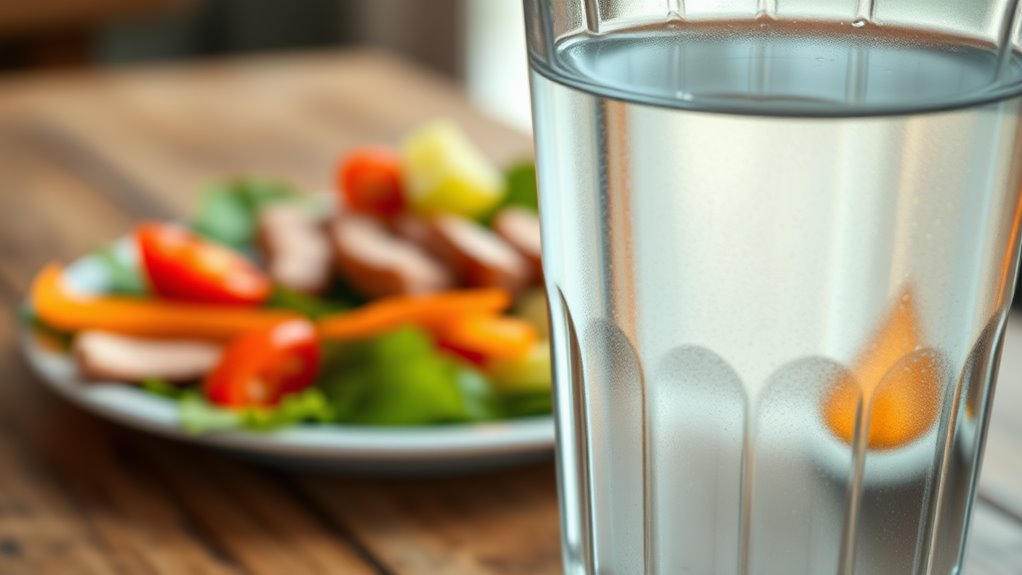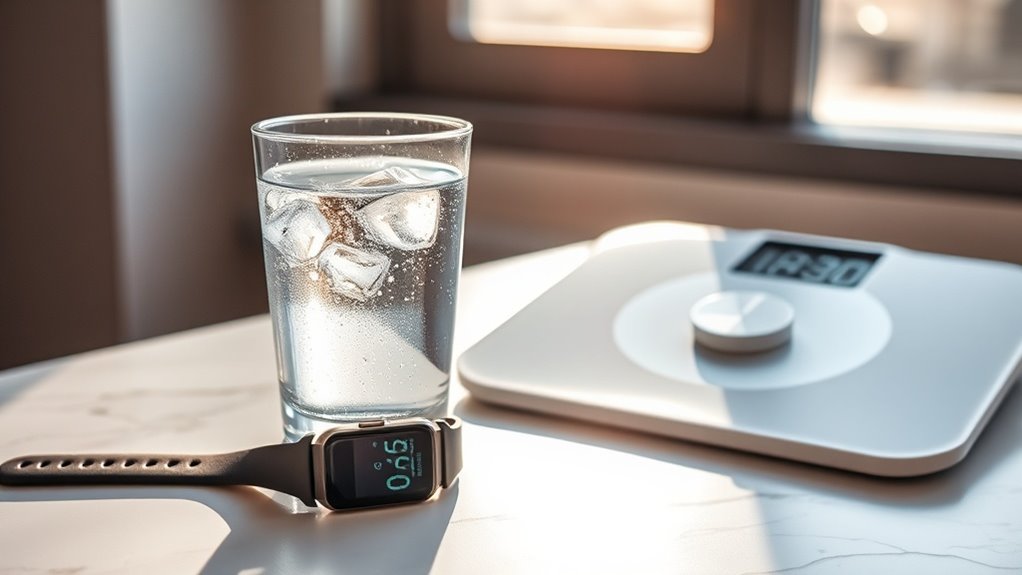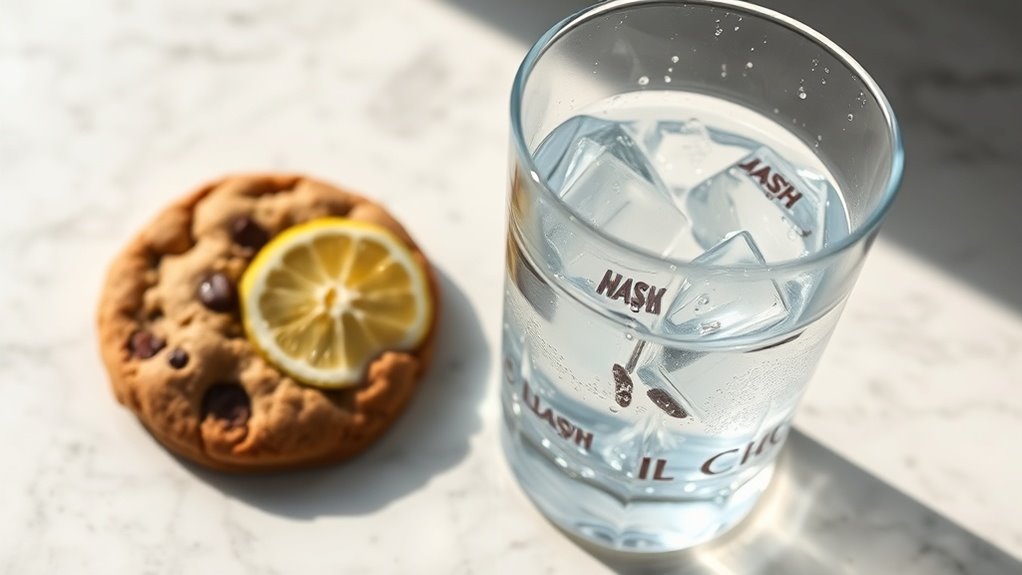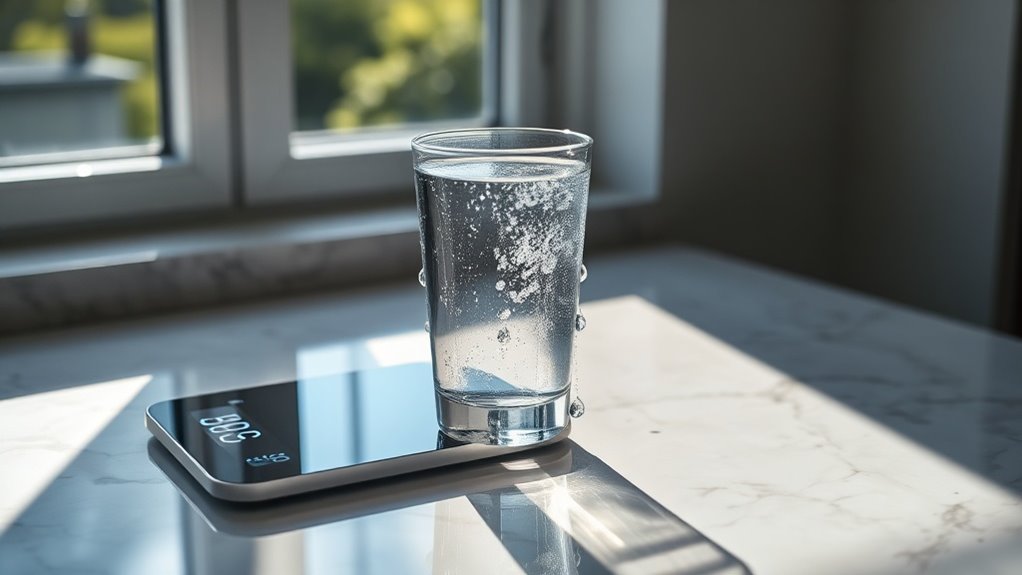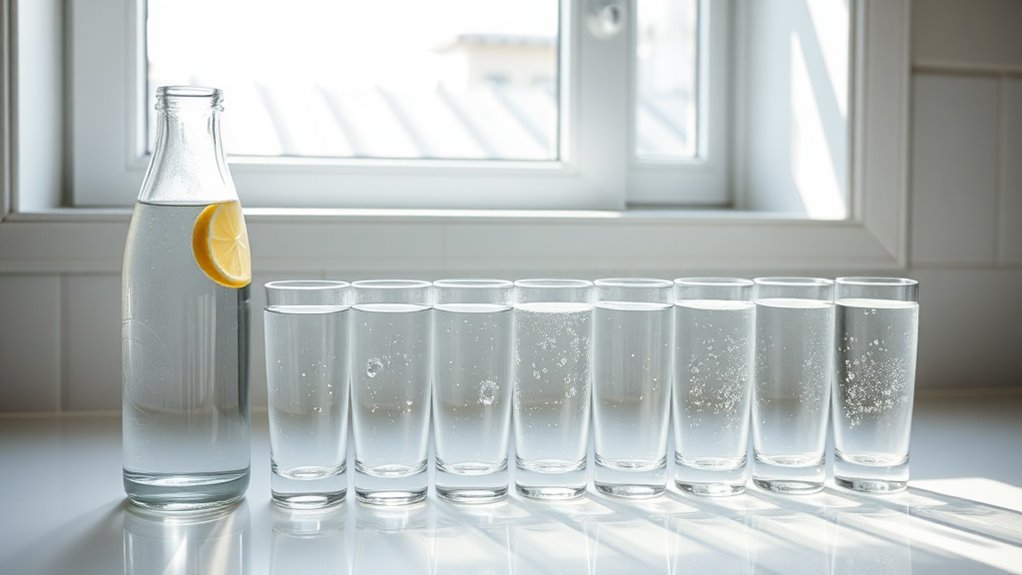Why Drinking Water Before Meals Made Me Eat Less
Could drinking water before meals really help you eat less? Research suggests that it can. By consuming around 8 ounces about 30 minutes prior to eating, you may fill your stomach and influence hunger hormones. This simple habit not only aids in portion control but also enhances digestion. Curious about how this practice can transform your eating habits and support your weight management goals? Let’s explore the science and benefits behind it.
Key Takeaways
- Drinking water before meals fills the stomach, promoting a sense of fullness and reducing overall calorie intake.
- Consuming 500 ml of water before a meal can decrease meal intake by 13%, according to studies.
- Proper hydration balances appetite hormones like ghrelin and leptin, helping regulate hunger signals.
- Water aids digestion and nutrient absorption, enhancing the breakdown of food and supporting metabolism.
- Staying hydrated prevents confusion between thirst and hunger, reducing unnecessary snacking and cravings.
The Science Behind Hydration and Appetite Control
How does hydration influence your appetite? Research shows that drinking water before meals can help control hunger.
The water before meals trick works by filling your stomach, leading to a feeling of fullness that reduces overall calorie intake.
Studies suggest that consuming about 500 ml of water before eating can decrease meal consumption by 13%.
Additionally, hydration plays a crucial role in regulating hormones related to appetite, such as ghrelin and leptin. Proper hydration maintains the body’s internal balance, which can significantly affect feelings of fullness.
My Personal Experience With Pre-Meal Hydration
When you start drinking water before meals, you might notice a shift in your appetite control.
Timing is key; having a glass of water about 30 minutes prior can help you feel fuller, leading to smaller portions.
In my experience, this simple habit not only curbs overeating but also enhances my overall hydration. Additionally, drinking water before meals activates the digestive system, allowing for better food breakdown and nutrient absorption.
Hydration and Appetite Control
Ever wondered how something as simple as drinking water before meals could affect your appetite? Research shows that hydration plays a crucial role in appetite control.
When you drink water, it fills your stomach, signaling fullness and reducing hunger pangs. This can lead to consuming fewer calories during meals.
Additionally, sometimes you might confuse thirst with hunger, leading to unnecessary snacking.
By staying hydrated, you not only quench your thirst but also support your body’s natural appetite regulation.
Incorporating water into your pre-meal routine can be a simple yet effective strategy for managing your food intake and promoting healthier eating habits.
Timing of Water Intake
Have you ever noticed how the timing of your water intake can influence your meal experience? Drinking water before meals helps you feel fuller and eat less. Studies show that consuming water 30 minutes prior can significantly reduce calorie intake during meals.
| Timing | Effect on Appetite | Recommended Action |
|---|---|---|
| 30 minutes | Increased satiety | Drink 1-2 cups |
| 15 minutes | Slight fullness | Drink 1 cup |
| During meal | Dilutes digestive juices | Limit intake |
Adjusting when you hydrate can help you manage portion sizes effectively.
How Water Affects Digestion
How does water influence your digestion?
Drinking water helps break down food, making nutrients more accessible for absorption. It’s essential for producing saliva, which aids in chewing and swallowing.
Additionally, adequate hydration keeps your digestive tract lubricated, preventing constipation.
Studies show that drinking water before meals can increase feelings of fullness, leading to smaller portion sizes.
Water also helps maintain the balance of digestive acids and enzymes, promoting efficient digestion. Moreover, proper hydration supports metabolism and fat burning, ensuring that nutrients are effectively utilized by the body.
Tips for Incorporating Water Before Meals
Before you sit down for a meal, consider making it a habit to drink a glass of water. Aim for about 8 ounces, as studies suggest this can help reduce calorie intake.
You can set a reminder on your phone or keep a water bottle handy in your kitchen. If you’re dining out, order water before your meal arrives.
Try flavored water with lemon or cucumber to make it more enjoyable. Additionally, practicing mindfulness while eating can help you consume fewer calories by allowing your body to register fullness.
These small changes can significantly impact your eating habits and overall health.
Comparing Water Intake With Other Appetite Suppressants
When you compare drinking water to other appetite suppressants, the benefits of natural hydration stand out. Water not only helps reduce caloric intake but also offers a cost-effective alternative to more expensive appetite control methods. Proper hydration can curb hunger and reduce unnecessary snacking, making it easier to manage weight effectively. Understanding these differences can guide you in making healthier choices for weight management.
Natural Hydration Benefits
Water stands out as a natural appetite suppressant compared to other methods, like diet pills or fiber supplements. It hydrates your body and fills your stomach, signaling fullness without added calories. Research shows that drinking water before meals can reduce overall food intake effectively.
| Method | Appetite-Suppressing Effect |
|---|---|
| Water | High |
| Diet Pills | Variable |
| Fiber Supplements | Moderate |
| Snacks (high in sugar) | Low |
Incorporating water as your go-to appetite suppressant offers a safe, accessible alternative to chemical-based solutions. You’ll feel fuller and more satisfied with fewer calories.
Comparing Caloric Intake
Incorporating water as an appetite suppressant can significantly influence your overall caloric intake compared to other methods.
Here’s how it stacks up:
- Hydration vs. Fiber: While fiber-rich foods can curb hunger, they often come with higher calories.
- Water vs. Caffeine: Caffeine may boost metabolism, but it can lead to jitters and cravings.
- Water vs. Supplements: Many appetite suppressant pills can have side effects and are costly.
- Water’s Zero Calories: Unlike other suppressants, water has no calories, making it a guilt-free option.
Choosing water is a simple, effective way to manage your caloric intake.
Cost-Effective Alternatives
How can you manage your appetite effectively without breaking the bank?
Drinking water before meals is a simple, cost-effective strategy.
Studies show that hydration can reduce hunger and calorie intake.
Alternatively, consider fiber-rich foods like fruits and vegetables; they’re not only filling but also affordable.
Green tea is another budget-friendly option that may boost metabolism and curb cravings.
If you’re looking for a bit more flavor, try herbal teas or lemon water.
These options provide appetite control without the high price tag of supplements.
Ultimately, staying hydrated and incorporating whole foods can lead to effective appetite management.
Long-Term Benefits of Drinking Water Before Eating
Here are some key advantages:
- Weight Control: Reduces overall calorie intake by promoting fullness.
- Improved Digestion: Aids in breaking down food, enhancing nutrient absorption.
- Hydration: Keeps you hydrated, supporting metabolic functions and energy levels.
- Reduced Snacking: Diminishes cravings for unhealthy snacks between meals.
Additionally, incorporating warm lemon water into your routine can further enhance these benefits by boosting metabolism and aiding digestion.

